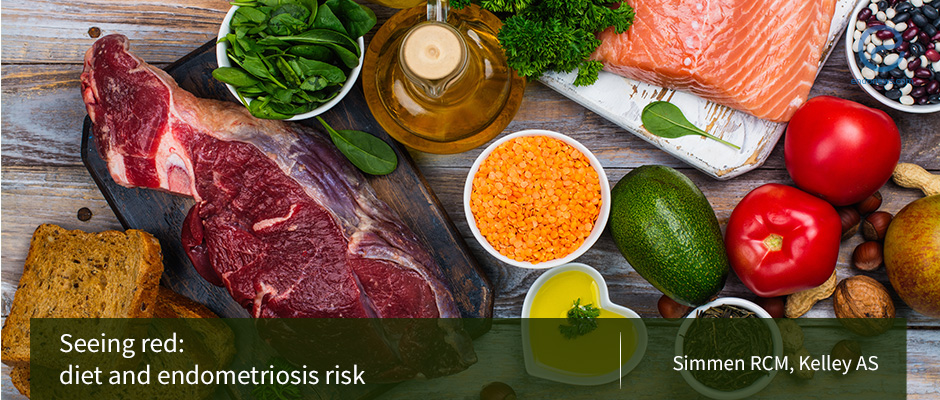The association between the development of endometriosis and dietary habits
Feb 25, 2019
There is a link between the development of endometriosis and high dietary fat consumption.
Key Points
Highlights:
- Endometriosis is a chronic estrogen-dependent disease which is apparently associated with dietary habits.
Importance:
- The consumption of fish, shellfish or eggs reduces the risk of endometriosis development as in many other chronic diseases, and the intake of red meat, either as processed or unprocessed, is one of the major contributing factors for the development of endometriosis.
What’s done here?
- The effect of dietary habits of women on the development of endometriosis was discussed in this editorial evaluating the study published by Yamamoto et al. This study supporting the negative impact of high intake of fatty diet for the development and progression of endometriosis was presented with all its strengths.
- The study was performed on 3800 pre-menopausal women for which endometriosis was diagnosed by laparoscopy, and the dietary habits were examined based on portion size and frequency of intake.
Data:
- Intake of red meat, either as processed or unprocessed, is one of the major contributing factors for the development of endometriosis, in contrast, the consumption of fish, shellfish or eggs reduces the risk of endometriosis development as in many other chronic diseases such as type 2 diabetes.
- The possible mechanism explaining the association between the fatty diet and endometriosis development is that heme iron which is an abundant component in red meat is responsible for the negative effects of red meat consumption. Heme iron also results in oxidative stress and DNA damage contributing to the development of endometriosis.
- There is a correlation between the frequency of high-fat consumption and the development of endometriosis (≥2 servings/day are at higher risk for endometriosis than those ≤1 serving/week.
- These women with high consumption of fatty diet are more prone to have higher body mass index (BMI). Although lower BMI is a risk factor for endometriosis, it is thought that loss of body weight and body fat may be a consequence rather than a reason due to disruption of hepatic metabolic gene expression.
- Red meat may also increase endogenous estrogen levels which are also elevated in women with endometriosis.
- Organic pollutants present in farmed animal products may contribute to the development of endometriosis.
- It is thought that in women with endometriosis gut microbes which regulate signaling molecules that orchestrate inflammatory, immune and proliferative pathways undergo changes. These changes are primarily dietary induced.
Strengths of the study:
- The large sample size encompassing 3800 pre-menopausal women in which the endometriosis diagnosis was confirmed by laparoscopy, and the dietary habits being examined based on portion size and frequency of intake were the strengths of the study.
Lay Summary
Endometriosis is a chronic disease defined as the localization of endometrial glandular and stromal tissue outside the uterine cavity. The prevalence is found to be approximately 10% in the general population. Endometriosis is associated with infertility, pelvic pain, and increased risks for ovarian and other cancers.
Delay in clinical diagnosis has been reported due to the asymptomatic presentation of the disease at the early stages. Although there are several treatment strategies, there is no clear consensus about the definitive approach due to unknown etiopathogenesis. Simmen et al, a group of scientists from the USA, published an editorial titled as “Seeing red: diet and endometriosis risk” in the journal named as Annals of Translational Medicine.
These authors aimed to evaluate the effect of dietary habits on the development of endometriosis. They summarized that high consumption of fatty diet is considered to be a risk factor for endometriosis. The portion size and frequency of intake are contributing factors for the development of endometriosis.
“Multi-faceted nature of endometriosis may be managed by simple dietary changes and provides a compelling case for women of reproductive-age to reevaluate their dietary habits for the prevention of chronic disease,” they added.
Research Source: https://www.ncbi.nlm.nih.gov/pubmed/30740440
endometriosis dietary habits infertility surgery ovarian reserve pregnancy rate combined technique recurrence

